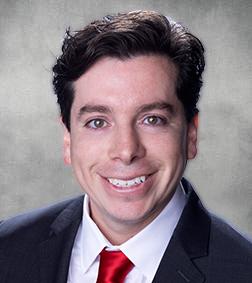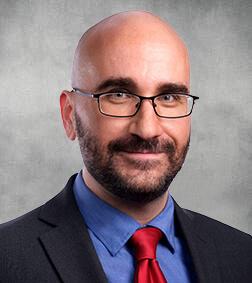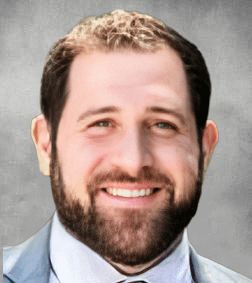Federal Criminal Defense Lawyer
Charged With a Federal Crime? We Defend the Accused Nationwide With Relentless Commitment and Proven Results.
If you've been charged with a federal crime—or believe you're under federal investigation—it's not just another legal matter. Your freedom, your future, your livelihood—everything is on the line. The federal government has nearly unlimited resources, experienced prosecutors, and powerful law enforcement agencies working together. Federal cases move quickly, and once charges are filed, the stakes couldn't be higher.
Unlike state prosecutions, federal charges often involve complex investigations by agencies like the FBI, DEA, or IRS. These cases are prosecuted in U.S. District Courts and follow procedures and sentencing rules that differ significantly from state courts. Federal sentencing is often harsher, and prosecutors rarely pursue charges unless they think they can win.
We don't wait for indictments to be filed—we intervene early, challenge investigations, and prepare every case like it's going to trial. That's the difference a skilled private defense lawyer makes—we're in your corner the moment your rights are at risk.
If you've received a target letter, been indicted by a grand jury, or even suspect you're under federal surveillance, don't wait for things to spiral. You need counsel now. Call us. Let's get to work protecting your name, your future, and your freedom.
What Is a Federal Crime?
A federal crime is any violation of a law passed by Congress. These are not minor infractions or simple misunderstandings—federal offenses often carry severe penalties and are investigated by powerful agencies. If your case is in federal court, it means the United States government has chosen to prosecute you. That alone should make you take the situation extremely seriously.
Federal crimes typically fall under Title 18 of the United States Code, which governs most federal criminal laws. These include offenses like drug trafficking, wire fraud, tax evasion, firearms violations, immigration crimes, and more. Federal laws apply across all 50 states and territories, and many offenses are prosecuted when alleged conduct crosses state lines or involves interstate commerce.
Federal Agencies Involved
Depending on the nature of the offense, you may be investigated by one or more of the following:
• FBI – Handles complex criminal conspiracies, cybercrimes, terrorism, and organized crime.
• DEA – Investigates large-scale drug trafficking and manufacturing.
• IRS Criminal Investigation Division – Pursues tax fraud and financial crimes.
• ATF – Investigates weapons trafficking and arson.
• Department of Homeland Security (ICE, CBP) – Focuses on immigration and border-related offenses.
• U.S. Secret Service – Investigates credit card fraud and threats to federal officials.
These agencies work together and often spend months or years building cases before charges are filed. By the time you find out, they may already have a long paper trail, surveillance footage, or wiretaps.
Examples of Federal Crimes
Some of the most commonly prosecuted federal offenses include:
• Drug Trafficking (21 U.S.C. § 841): Makes it a crime to manufacture, distribute, or possess with intent to distribute controlled substances. Penalties include 5, 10, or even 20 years "mandatory minimum" in prison, depending on drug type and quantity.
• Wire Fraud (18 U.S.C. § 1343): Involves using phone lines or the internet to commit fraud. This includes scams, identity theft, or fraudulent business schemes. Each count can carry up to 20 years.
• Illegal Firearm Possession (18 U.S.C. § 922(g)): Makes it illegal for certain people (like convicted felons) to possess firearms or ammunition. This is commonly charged in gun and gang-related cases.
• Illegal Reentry After Deportation (8 U.S.C. § 1326): If someone returns to the U.S. after being deported for a felony or immigration violation, they can face up to 20 years in prison.
• Conspiracy Charges (18 U.S.C. § 371): You don't have to commit the actual crime—planning it with others may be enough. Conspiracy carries the same penalties as the underlying offense.
These laws are often used aggressively. Prosecutors frequently stack charges to increase leverage during plea negotiations. That's one more reason you need a private attorney—not a public defender with dozens of cases or someone new to federal court. We know what the prosecution is doing. We've seen it. And we know how to fight it.
Real-Life Example: Drug Conspiracy Defense Victory
Let me give you an example. One of our clients—let's call him Daniel—was charged with conspiracy to distribute more than 5 kilograms of cocaine under 21 U.S.C. § 846, which carries a 10-year mandatory minimum if convicted. The DEA had audio recordings and seized drugs, and Daniel was allegedly tied to a larger trafficking ring.
However, after carefully reviewing the discovery, we identified a critical flaw. The government's confidential informant had a history of unreliable testimony, and our client had never actually handled any drugs. The only connection was a vague conversation taken out of context.
We filed a motion to suppress the recordings, challenged the sufficiency of the evidence for conspiracy, and refused to back down. Eventually, the prosecutor offered to drop the charges in exchange for a misdemeanor obstruction plea with probation. Daniel never spent a day in prison.
That's what effective private defense can do.
Why You Need a Private Attorney for a Federal Criminal Case
Federal charges aren't the kind of problem you "wait out" or "see how it plays out." The U.S. Attorney's Office prosecutes with one goal in mind: conviction. Public defenders often carry 70 to 100 active cases and simply cannot dedicate the time a serious federal case demands.
As a private federal defense attorney, I work on fewer cases and build customized, aggressive defense strategies. We hire experts, subpoena records, challenge the indictment, and push back on every move the government makes. You don't get that kind of defense unless you hire someone whose full focus is protecting you—and only you.
The Difference Between Federal and State Crimes
Many people are surprised to learn that you can be prosecuted by both a state and the federal government for the same conduct. However, the differences between the two systems are critical, and they go far beyond who brings the charges. When you're up against the federal government, you're facing a completely different level of prosecution—one with stricter procedures, harsher penalties, and prosecutors who typically do not negotiate lightly.
A federal crime is any offense that violates a law passed by the United States Congress. These laws are codified in Title 18 of the United States Code, among other sections. In contrast, state crimes violate state statutes passed by individual state legislatures. While both can involve serious consequences, the federal system is uniquely unforgiving due to the power of the agencies involved, the resources of the Department of Justice, and the binding federal sentencing guidelines that judges often rely on.
Jurisdiction: Who Has the Right to Prosecute?
The key distinction between federal and state crimes begins with jurisdiction—the authority of a government to enforce laws. The federal government has jurisdiction when:
• The alleged crime occurred across state lines
• The conduct involved federal property or federal employees
• The offense involved interstate commerce
• A federal statute explicitly applies to the conduct
For example, trafficking narcotics from one state to another or laundering money using banks across state lines typically qualifies for federal jurisdiction. On the other hand, a DUI on a city street or a bar fight would usually be handled at the state level—unless it happened on federal property like a military base or national park.
Agencies and Investigators
Federal cases are investigated by powerful national agencies with specialized divisions and nearly unlimited budgets. These include:
• Federal Bureau of Investigation (FBI)
• Drug Enforcement Administration (DEA)
• Internal Revenue Service - Criminal Investigations (IRS-CI)
• Bureau of Alcohol, Tobacco, Firearms and Explosives (ATF)
• Department of Homeland Security (DHS)
• U.S. Secret Service
State cases, by contrast, are generally handled by local police departments, sheriff's offices, and state prosecutors. While state law enforcement officers work hard, they often don't have access to the same types of technology, intelligence networks, or federal grand juries.
Court Procedure and Rules
Federal criminal cases are tried in U.S. District Courts and governed by the Federal Rules of Criminal Procedure. These rules determine everything from the timing of arraignments to how evidence is handled. The process is highly structured, and once you're indicted, the timeline begins to move quickly.
The use of grand juries is another major difference. Most federal charges originate with a grand jury indictment, which is conducted in secret, without your attorney present. You may not even know you're under investigation until the indictment is unsealed.
Federal judges also follow sentencing procedures that rely on the United States Sentencing Guidelines. These guidelines assign a numeric level to every offense and consider aggravating or mitigating factors such as the amount of financial loss, number of victims, drug quantities, or prior convictions.
Here's what that means: once convicted in federal court, judges typically have less discretion to go easy on you—even if you have no prior record.
Federal Statute Example: 18 U.S.C. § 1344 - Bank Fraud
Let's look at 18 U.S.C. § 1344, which makes it a federal crime to "knowingly execute, or attempt to execute, a scheme or artifice to defraud a financial institution."
The penalty? Up to 30 years in federal prison and a fine of up to $1,000,000 per count.
In contrast, a similar fraudulent act involving a check or credit card within a single state might result in a state-level fraud charge punishable by a year or two in jail. It all depends on whether the institution is federally insured or crosses jurisdictional boundaries.
Double Jeopardy Doesn't Always Apply
You may have heard that you can't be tried twice for the same crime—this is true under the Double Jeopardy Clause of the Fifth Amendment. But what many don't realize is that federal and state courts are considered separate sovereigns under the law.
This means that you can be prosecuted in both state and federal court for the same act. While it doesn't happen often, when it does, the penalties can be devastating—and only an experienced private attorney can help prevent or mitigate this outcome.
Real-Life Example: Federal Gun Charge After State Case Dropped
One of our clients, "Tony," was pulled over by state police for a traffic stop. They found a firearm under his seat. Although the state dropped the case due to insufficient evidence of possession, the federal prosecutor charged him under 18 U.S.C. § 922(g) for being a felon in possession of a firearm. He was looking at 10 years in prison, even though the state had already walked away.
We stepped in, challenged the legality of the traffic stop, and uncovered evidence that the weapon belonged to someone else. After extensive litigation and pretrial motions, the federal case was dismissed entirely. Without private counsel aggressively defending him, Tony likely would have pleaded guilty just to avoid the risk of trial.
Why You Need a Private Attorney When Facing Federal Charges
Federal prosecutors don't file cases they think they'll lose. When the U.S. Attorney's Office takes action, they believe they already have the evidence to convict you. Federal sentencing is tough. Bail is harder to obtain. And public defenders often don't have the resources to mount the kind of thorough defense you'll need.
Hiring a private federal criminal defense attorney means having someone who can:
• Challenge jurisdiction
• Fight the grand jury's conclusions
• Negotiate directly with Assistant U.S. Attorneys
• Build expert-based defenses
• Push for pre-indictment dismissal
• Argue for downward departures at sentencing
That's the kind of advocacy that changes lives—and saves them.
What's the Difference Between a Federal Misdemeanor and a Federal Felony?
When people hear the word "felony," they often assume the worst. However, in federal court, both misdemeanors and felonies can lead to jail time, life-altering consequences, and a permanent criminal record. The distinction between the two lies primarily in how much time you can be sentenced to—but the real-world impact often depends on how your attorney handles the case.
Let's walk through the key differences and why having a skilled private defense lawyer matters regardless of how "minor" the charge may appear.
Federal Statutory Definitions
Under 18 U.S.C. § 3559(a), Congress defines the classification of federal offenses:
"An offense that is not specifically classified by a letter grade is classified according to the maximum term of imprisonment authorized."
Here's how that breaks down:
• Felony: Any federal offense punishable by more than one year in prison
• Misdemeanor: Any offense punishable by one year or less in prison
Misdemeanors are further classified:
• Class A misdemeanor: Up to 1 year in prison
• Class B misdemeanor: Up to 6 months
• Class C misdemeanor: Up to 30 days
Felonies are classified by seriousness, ranging from:
• Class A felony: Life imprisonment or death
• Class B felony: 25 years or more
• Class C felony: 10–25 years
• Class D felony: 5–10 years
• Class E felony: 1–5 years
But don't be fooled—just because something is a "misdemeanor" under federal law doesn't mean the case is simple or low risk.
Example: Federal Misdemeanor Firearm Possession
Let's say someone brings a gun into a federal courthouse, which is illegal under 18 U.S.C. § 930(a). That's a Class A misdemeanor punishable by up to 1 year in federal prison. However, if they intended to use that weapon in a crime, the charge automatically becomes a felony under 18 U.S.C. § 930(b), with a potential 5-year sentence.
That's just one example of how fast a case can escalate—and why early legal intervention makes a difference.
Other Common Federal Misdemeanors
Some examples include:
• Trespassing on federal property
• Possessing small amounts of drugs in a federal park
• Minor immigration violations
• Protesting in restricted areas near federal buildings
• Disorderly conduct on an airplane
These are all handled in federal court and can result in jail time, probation, fines, and permanent federal records.
The Collateral Damage of Federal Convictions
Whether you're convicted of a felony or a misdemeanor, the long-term effects are serious:
• Loss of professional licenses
• Ineligibility for federal jobs
• Immigration consequences for non-citizens
• Difficulty obtaining housing or loans
• Damage to reputation and background checks
Felony convictions also mean loss of firearm rights under 18 U.S.C. § 922(g), as well as loss of voting rights in some states. And unlike some state misdemeanor convictions, federal convictions are not expunged—they stay on your record for life.
Real-Life Case Example: Avoiding a Felony Through Strategic Negotiation
We represented a client, "Carlos," who was arrested for attempting to bring a stun gun into a secure TSA checkpoint. He had no criminal history and cooperated with officers. The initial charge under 49 U.S.C. § 46314 could have been elevated to a felony because of the perceived intent to circumvent airport security.
We immediately engaged with the Assistant U.S. Attorney and provided mitigating evidence: Carlos worked in private security and had simply forgotten the device in his bag. By presenting this context early, we negotiated a Class B misdemeanor charge with no jail time and a short probation period that kept his record clean after completion.
Had he relied on a court-appointed attorney with no time to prepare, he likely would've accepted a felony plea—without knowing the lifelong impact.
Why You Need a Private Federal Defense Lawyer – Even for a Misdemeanor
Too many people underestimate the seriousness of a federal misdemeanor. They think, "It's just a minor case." But by the time you get to court, the damage is already happening. And the prosecutors you're up against are not in the business of giving out favors.
As your private defense attorney, I'm not juggling 80 other cases. I'm focused on your outcome. I review every word of the charging documents, every piece of evidence, and every opportunity to minimize the impact on your life. We look for procedural flaws, improper charging, and every possible argument to downgrade or dismiss your case. You don't get that kind of defense unless you choose it—and it starts with picking up the phone.
Types of Federal Criminal Charges We Handle
When you're charged with a federal crime, it's never just about one moment or one mistake. The government often brings multiple charges—sometimes dozens—based on overlapping statutes, conspiracy laws, and alleged connections to others. That's one of the federal system's most powerful tools: it stacks charges and uses leverage to force plea deals. But that strategy can be challenged, piece by piece, with the right legal defense.
At Musca Law, we defend clients nationwide in federal courtrooms across the country. We've taken on everything from single-count indictments to sprawling multi-defendant conspiracies. No matter how overwhelming the case looks at first glance, we get to work immediately—dissecting the evidence, challenging the government's narrative, and building a defense that puts your future first.
Below are the major categories of federal charges we regularly defend against:
White Collar Crimes
Federal prosecutors treat financial crime just as seriously as violent offenses. If you're accused of fraud or financial misconduct, you're likely being investigated under 18 U.S.C. § 1341 (Mail Fraud) or § 1343 (Wire Fraud). These statutes apply whenever someone allegedly uses the mail, phone, or internet as part of a fraudulent scheme.
18 U.S.C. § 1343 states:
"Whoever, having devised or intending to devise any scheme or artifice to defraud… transmits by means of wire… for the purpose of executing such scheme… shall be fined or imprisoned not more than 20 years."
That's 20 years per count—and the government can charge multiple counts based on each communication.
We defend against:
• Securities fraud
• Tax fraud (26 U.S.C. § 7201)
• Bank fraud (18 U.S.C. § 1344)
• Healthcare fraud (18 U.S.C. § 1347)
• PPP loan fraud
• Identity theft (18 U.S.C. § 1028A)
Defenses in these cases often involve challenging intent, demonstrating a lack of willful misrepresentation, or showing that conduct was negligent—not criminal.
Example: We successfully defended a business owner charged with federal wire fraud in connection to a CARES Act loan. By showing that the accounting mistake was the fault of a third-party preparer, we convinced the U.S. Attorney to drop all charges prior to the indictment.
Drug Crimes
Federal drug charges often trigger mandatory minimums under 21 U.S.C. § 841 and § 846 (Conspiracy). These laws apply to the manufacture, distribution, or possession with intent to distribute controlled substances.
Mandatory minimums start at 5 or 10 years, depending on the type and weight of the drugs involved. Enhancements are applied for weapons, prior convictions, or alleged overdose deaths.
We defend clients facing charges for:
• Interstate drug trafficking
• Conspiracy to distribute narcotics
• Manufacturing methamphetamine or synthetic drugs
• Importation of controlled substances
• Prescription fraud and diversion
• Controlled buys set up by confidential informants
Key defenses include unlawful search and seizure, entrapment, and challenging the reliability of confidential informants or forensic drug testing.
Example: A client facing 10 years for conspiracy to distribute heroin was found not guilty after we proved the government's informant lied under oath and was financially incentivized to exaggerate our client's role.
Firearms Offenses
The federal government aggressively prosecutes weapons cases. Most charges fall under 18 U.S.C. § 922(g), which prohibits certain individuals from possessing firearms or ammunition, including:
• Convicted felons
• Fugitives
• Unlawful users of controlled substances
• Those with domestic violence convictions or restraining orders
Penalties for a first offense can reach 10 years, and second-time offenders under 18 U.S.C. § 924(e) face 15 years to life as armed career criminals.
We've defended clients charged with:
• Felon in possession
• Illegal sale or trafficking of firearms
• Possession of a firearm in furtherance of a drug trafficking offense
• Use of a firearm during a crime of violence
Common defenses include lack of possession, unlawful searches, and improper classification of prior offenses.
Immigration Offenses
Federal immigration crimes are charged under 8 U.S.C. § 1326 (illegal reentry after deportation), § 1324 (smuggling), and § 1325 (improper entry).
Illegal reentry carries a baseline penalty of up to 2 years, but enhancements apply if the individual was previously deported for an aggravated felony—bringing the maximum sentence to 20 years.
We handle cases involving:
• Illegal reentry
• Document fraud
• Harboring or transporting undocumented immigrants
• Marriage fraud
• Asylum and visa fraud
Defenses often include attacking prior deportation orders, proving a lack of knowledge or intent, and challenging the government's documentation chain.
Cyber Crimes
Tech-related crimes are aggressively prosecuted under 18 U.S.C. § 1030 (Computer Fraud and Abuse Act) and other statutes targeting online activity.
We've represented defendants accused of:
• Hacking or unauthorized access
• Wire fraud via email spoofing
• Cryptocurrency-related fraud
• Identity theft
• Distribution of child pornography (18 U.S.C. § 2252)
These charges often carry 5 to 20 years per count, and sentencing enhancements apply for the number of victims or the amount of loss.
Defenses include disputing digital attribution, lack of criminal intent, and violations of the Fourth Amendment in forensic searches.
Conspiracy and RICO Charges
Federal prosecutors frequently use 18 U.S.C. § 371 (Conspiracy to Commit Offense or Defraud the United States) and 18 U.S.C. §§ 1961–1968 (RICO) to cast a wide net over groups of defendants.
You can be charged with conspiracy even if the crime was never completed—as long as the government believes you agreed to commit it.
We defend:
• RICO indictments involving gang activity or organized crime
• Drug or financial conspiracies
• Racketeering tied to business practices
• Enterprise corruption allegations
Real defense strategies often focus on separating your conduct from the alleged enterprise or proving you had no intent to participate.
Why You Need a Private Attorney in Complex Federal Cases
No two federal cases are the same. Every charge carries its own nuances, statutes, penalties, and legal strategies. If you're relying on a public defender or an attorney unfamiliar with federal procedure, you're playing with fire.
We treat your case like the most important case in the world—because, to you, it is. We scrutinize the indictment, challenge the government's theory, and look for every opportunity to weaken their position before trial or sentencing.
If you've been charged with a federal crime or believe you're under investigation, don't wait for that knock at the door. Call Musca Law today. We'll get to work immediately.
Understanding the Federal Criminal Case Process
Federal criminal cases don't start with an arrest out of nowhere. By the time the government charges you, they've usually spent months—or even years—building a case. Investigators work behind the scenes, wiretap phones, flip witnesses, subpoena financial records, and put together a strategy to win. That's why understanding how federal cases unfold is critical. Every stage is an opportunity for your attorney to make a difference—and every delay in hiring private counsel can cost you.
I'll walk you through the key phases of a federal criminal case and explain where we come in, how we protect you, and what defenses can be raised along the way.
1. Investigation and Target Letters
Most federal cases begin with an investigation by agencies like the FBI, DEA, or IRS. You may have no idea you're being watched until something arrives in the mail—a target letter from the U.S. Attorney's Office.
A target letter informs you that:
"You are the target of a federal grand jury investigation,"
and that,
"The government believes you have committed a federal offense."
This is your first critical window to act. You are not under arrest yet. You have not been indicted. But you are very much at risk.
What we do at this stage:
• Contact the U.S. Attorney on your behalf
• Gather information about the scope of the investigation
• Advise you on whether to cooperate, remain silent, or take other steps
• Prevent damaging statements or mistakes that could trigger charges
Sometimes, we can resolve the matter before an indictment is filed.
2. Arrest and Initial Appearance
If you're arrested on a federal warrant or picked up by federal agents, the next step is your initial appearance in front of a U.S. magistrate judge.
The court will:
• Inform you of the charges
• Determine whether you will be released on bond or held without bail
• Appoint counsel if you don't have one
Here's where federal law is different. Under 18 U.S.C. § 3142, the government can request pretrial detention based on flight risk or danger to the community. In many cases, especially involving drugs or firearms, the law creates a presumption that no conditions can guarantee your release.
We respond immediately by:
• Preparing a strong bond motion
• Presenting evidence of stable employment, family ties, and lack of flight risk
• Challenging the government's basis for detention
Getting released before trial is crucial to building your defense—and it doesn't happen automatically.
3. Indictment and Arraignment
Most federal criminal cases are charged by grand jury indictment. The grand jury meets in secret and hears only from the prosecution—your lawyer is not allowed in the room.
Once the indictment is returned, you'll be formally charged and arraigned. At the arraignment, you'll enter a plea of "not guilty," and the judge will set a schedule for motions and trial.
Statute: Federal Rule of Criminal Procedure 7
"An indictment shall be a plain, concise, and definite written statement of the essential facts constituting the offense charged."
But even if the indictment is vague, it can carry devastating consequences. Multiple counts, overlapping charges, and potential enhancements are often used to box you in.
We get involved by:
• Reviewing the indictment for legal flaws
• Filing motions to dismiss vague or duplicative charges
• Starting early plea negotiations if appropriate—but only on your terms
4. Pretrial Motions and Discovery
Once charges are filed, both sides exchange evidence in a process called discovery. This includes:
• Police reports
• Surveillance footage
• Witness statements
• Grand jury transcripts
• Lab reports and forensic evidence
During this stage, we file aggressive pretrial motions such as:
• Motion to suppress illegally obtained evidence under the Fourth Amendment
• Motion to dismiss based on jurisdiction or lack of probable cause
• Motion to sever co-defendants so you're not lumped in with others' misconduct
This is where private counsel matters most. Federal discovery is often massive—hundreds of pages, recordings, and technical reports. You need a lawyer who has time to go through it all, line by line.
5. Plea Negotiations or Trial
Federal prosecutors want convictions. They offer plea deals with reduced charges or sentencing recommendations in exchange for a guilty plea. But beware—pleas still result in a felony record, prison time, and forfeiture of rights.
We approach plea negotiations strategically. If a plea offers a clearly better outcome, we'll explain it. But we don't fold under pressure. If your case needs to go to trial, we prepare to win.
At trial, the government must prove guilt beyond a reasonable doubt to a jury. We challenge their story, cross-examine their witnesses, and present our own evidence to show the truth.
6. Sentencing and the Federal Sentencing Guidelines
If convicted, you'll face sentencing under the United States Sentencing Guidelines, a system that assigns point values based on the offense and your background.
Factors include:
• Amount of financial loss
• Drug weight
• Use of weapons
• Role in the offense
• Criminal history
• Acceptance of responsibility
Judges use these points to calculate a sentencing range, but they can depart upward or downward based on arguments we make.
We fight at sentencing by:
• Presenting mitigating evidence
• Arguing for downward departures
• Demonstrating rehabilitation, family support, and community contributions
7. Appeals and Post-Conviction Relief
If the outcome of your case was unfair, we can file an appeal with the U.S. Court of Appeals. Grounds for appeal include:
• Legal errors at trial
• Incorrect sentencing
• Misconduct by prosecutors
• Ineffective assistance of counsel
Even if appeals fail, we may seek post-conviction relief through motions to vacate, expunge, or reduce sentences under 28 U.S.C. § 2255.
Real Case Example: Motion to Suppress Changed Everything
Our client "Angela" was charged with wire fraud under 18 U.S.C. § 1343 after federal agents seized her laptop. They claimed she ran a phony investment scheme, and the indictment included over $1 million in alleged losses.
We discovered the laptop was taken without a valid warrant and filed a motion to suppress. The court ruled the search unconstitutional. With the primary evidence thrown out, the U.S. Attorney dismissed the case before trial.
Angela avoided prison and a felony conviction—because we knew what to look for, and we acted fast.
Why You Need a Private Attorney at Every Stage
From the moment the government targets you, the case starts moving. And every step—investigation, arrest, indictment, trial, sentencing—presents a choice: accept what they give you, or fight back with a plan.
If you wait until you're indicted to get serious, you're behind. If you rely on overworked court-appointed counsel, you won't get the attention your case demands. Hiring private defense at the investigation stage can change the outcome before charges are even filed.
Musca Law handles federal cases nationwide. We're ready to step in at any point—but the sooner we're involved, the better the chances of protecting your future.
What Questions Should You Ask a Federal Criminal Defense Lawyer?
When you're facing federal charges, not just any lawyer will do. Hiring the wrong attorney—someone who dabbles in criminal law or someone unfamiliar with federal court procedures—can cost you everything. This isn't the time to choose based on convenience or cost alone. You need someone who understands the system, knows the federal judges and prosecutors, and has proven results.
But how do you tell the difference between someone who just "handles" criminal cases and someone who actually defends people in federal court every day?
Start with the right questions.
How many federal cases have you handled from start to finish?
This is the most important question—and one that too many people forget to ask. Federal court is different from state court in almost every way. The rules of procedure are different. The judges have lifetime appointments and higher expectations. Prosecutors from the U.S. Attorney's Office are far more aggressive than most assistant state attorneys.
You need someone who has:
• Argued motions in U.S. District Court
• Taken federal cases to trial
• Filed motions to suppress under federal constitutional law
• Negotiated sentencing departures under the U.S. Sentencing Guidelines
We've done all of the above again and again in districts across the country.
Are you admitted to practice in federal court, and which districts?
Federal defense lawyers must be admitted to practice in each district where they appear. At Musca Law, our attorneys are admitted in multiple U.S. District Courts and work regularly with local counsel when needed in jurisdictions nationwide. We are fully prepared to defend you in any federal courtroom, coast to coast.
If the attorney you're interviewing isn't comfortable walking into a federal courtroom tomorrow and arguing for your release or filing a suppression motion, they're not the right fit.
What's your approach to pre-indictment cases?
Too many defense attorneys wait until their client is indicted before taking action. That's a mistake.
When we get involved early—at the investigation or target letter stage—we can:
• Talk directly with federal agents or prosecutors
• Gather exonerating evidence before charges are filed
• Negotiate a no-charges resolution or a misdemeanor alternative
• Prevent damaging statements or arrests
Your defense starts before the indictment, not after. Ask the lawyer whether they actively handle pre-indictment matters. If they don't, keep looking.
Have you successfully challenged federal indictments or evidence?
Anyone can say they "handle federal cases." But can they win suppression motions? Can they get indictments dismissed? Can they show you case numbers where the charges were reduced, dismissed, or beaten at trial?
We can—and we will if you sit down with us. One of our recent cases involved a multi-count wire fraud indictment under 18 U.S.C. § 1343. After we challenged the search warrant that uncovered key emails, the court granted our motion to suppress, and the entire case collapsed. That's the level of representation you deserve.
How do you handle sentencing under the U.S. Sentencing Guidelines?
Federal sentencing is often harsher than state court. Judges rely heavily on the Sentencing Guidelines, which assign offense levels and enhancements based on various factors.
If your attorney doesn't understand how to:
• Challenge enhancements
• Argue for departures under 18 U.S.C. § 3553(a)
• Present mitigating evidence effectively
…then you're already behind.
We begin preparing for sentencing from day one—even if your case goes to trial. That preparation helps us tell your story, advocate for leniency, and fight for your future.
These questions aren't just for show. They tell you whether the lawyer is ready to fight for you—or simply going to walk you through the system. A public defender may care, but they often don't have the time or resources. We do. And when you sit down with us, we'll walk through your situation, answer every question, and explain how we plan to protect you.
It's not just about knowing the law—it's about knowing how to fight for you at every stage. Ask the hard questions. Your future depends on it.
Qualities to Look for in a Federal Criminal Defense Attorney
When the federal government is investigating or charging you, you're no longer dealing with a local matter. You're up against prosecutors with vast resources, a head start, and the full weight of the United States government behind them. This is where your choice of attorney matters most. And it's not just about whether the lawyer is smart or aggressive—it's about whether they have the right experience, instincts, and dedication to federal criminal defense.
Not all criminal defense attorneys are qualified to take on a federal case. Many excellent lawyers excel in state court but have limited experience navigating the structure and strategy of federal prosecutions. When you're facing time in a federal prison, mandatory minimums, or multiple felony counts, you need someone who's already stood where you are and knows how to lead you through the fight.
Here's what to look for.
They must know federal law inside and out.
Federal cases are controlled by Title 18 of the United States Code, the Federal Rules of Criminal Procedure, and the Federal Sentencing Guidelines. That legal framework is very different from state court.
A qualified federal defense lawyer should be comfortable:
• Arguing motions under the Federal Rules
• Analyzing sentencing guidelines and enhancements
• Understanding how statutes like 18 U.S.C. § 924(c), § 1343, § 846, or § 922(g) work
• Defending against multi-count indictments with overlapping theories (wire fraud, conspiracy, money laundering, etc.)
If your lawyer doesn't live in the world of federal criminal law every day, they're not the right person to stand between you and the Department of Justice.
They must be prepared for trial—and willing to go there.
The truth is, most criminal cases end in plea deals. But the only reason federal prosecutors offer fair deals is because they know some attorneys will take them to trial—and win. If your attorney isn't comfortable taking a federal case to trial, you've already lost leverage.
Trial-readiness means:
• Knowing how to cross-examine government agents
• Understanding federal evidentiary rules
• Telling your story in a way that connects with a jury
• Filing strategic motions before trial begins
At Musca Law, we've tried high-stakes federal cases in multiple districts and won cases other attorneys thought were unwinnable. That's the kind of pressure-tested courtroom experience you need in your corner.
They must have time for your case—and a real team.
Federal cases are document-heavy. Thousands of pages of discovery, long chains of financial records, grand jury transcripts, and wiretap logs. If your lawyer doesn't have the time or staff to dig through all of it, critical evidence gets missed.
At Musca Law, we don't take every case that comes through the door. We focus on quality, not volume. Our federal defense team includes lawyers, researchers, investigators, and forensic experts. We build a complete defense—not just a last-minute plan for sentencing.
That's what separates a real defense team from a solo practitioner who's spread too thin.
They must know how to manage prosecutors—not just fight them.
Federal prosecutors are some of the most effective in the country. They aren't just filing charges—they're building cases for months in advance, working with agents, issuing subpoenas, and pushing for heavy sentences. Your lawyer has to know how to deal with them.
That means:
• Knowing how to negotiate without appearing weak
• Understanding when cooperation may lead to a better outcome
• Identifying when a prosecutor is bluffing—and when they're not
• Protecting you from statements or actions that can backfire
In some cases, we've convinced prosecutors not to file charges at all. In others, we've negotiated favorable plea agreements that avoided prison entirely. But none of that happens without experience, strategy, and communication.
They must care about the outcome as much as you do.
This one is often overlooked—but it matters more than anything else.
Federal criminal charges are overwhelming. You're scared. Your family's scared. Your future feels like it's slipping away. If your attorney isn't responding to you, isn't answering your calls, and isn't giving you honest answers about your case, you're alone.
We do things differently. We make ourselves available. We answer the tough questions. We guide you through every stage of the process—investigation, indictment, trial, or sentencing. And we treat your case like it's our own freedom on the line.
Because to you, this isn't just a legal problem. It's your life.
What we've learned from years of defending federal cases
The lawyers who win federal cases aren't always the ones who talk the loudest. They're the ones who prepare the hardest, care the most, and know what the law actually says.
We've seen clients walk away from 10-year mandatory minimums. We've had judges throw out indictments because we spotted flaws other attorneys missed. And we've helped people rebuild their lives after facing the most serious allegations the government can bring.
So when you're deciding who to trust with your case, ask yourself this: Does this attorney have the federal experience? Do they have the time? And do they care?
If the answer isn't yes to all three, keep looking.
Why Choose Musca Law for Your Federal Criminal Defense
When you're facing the U.S. government in a federal courtroom, your attorney isn't just representing you—they're standing between you and years, sometimes decades, in prison. Choosing the right law firm is one of the most important decisions you'll ever make. And if you've been charged with a federal offense or know you're under investigation, you don't have time to gamble on a lawyer who's learning as they go.
At Musca Law, we've built our reputation on defending people across the country who are accused of serious federal crimes. We don't take shortcuts. We don't sit back and wait for indictments to play out. We act—fast and with precision—because that's what your case demands.
Here's what sets us apart.
We Have a National Reach—and We Mean It
Federal cases happen everywhere: in U.S. District Courts from Miami to Los Angeles, from Chicago to El Paso. Our attorneys are admitted in multiple jurisdictions, and we regularly appear in courts across the country. When we're not already admitted in a district, we work with local counsel or apply for pro hac vice admission so we can personally defend your case.
We're not limited to one state. When we say we handle federal criminal defense nationwide, we back it up—with experience, staffing, and courtroom results.
We Handle Every Stage of the Case—From Investigation to Appeal
Some lawyers only get involved after indictment. By then, the prosecution has a massive head start. We've stepped in early—when clients receive target letters, are subpoenaed to testify before a grand jury, or even when a search warrant is executed—and we've prevented charges from being filed.
And when charges are filed, we fight.
Whether you're under investigation, have already been indicted, or are preparing for trial, we handle:
• Pre-indictment defense and intervention
• Motions to suppress and dismiss
• Complex trials involving conspiracy, fraud, drugs, or weapons
• Sentencing advocacy under the U.S. Sentencing Guidelines
• Post-conviction relief and appeals
At every stage, we take your case seriously. We prepare thoroughly, we push back hard, and we never treat you like a number.
We Build a Strategy That Fits You
Every federal case is different. A young man charged with firearm possession doesn't need the same defense as a business owner accused of wire fraud. A non-citizen facing immigration reentry has very different priorities than someone facing a mandatory minimum for fentanyl trafficking.
That's why we never use a one-size-fits-all defense strategy. We start with your story, your facts, and your goals—and we build from there. Our team evaluates the evidence, meets with investigators, reviews legal issues, and works with expert witnesses when needed. Then we give you the honest truth: what you're facing, what your options are, and how we can protect you.
We Win Cases Others Thought Were Lost
We've had federal charges dismissed due to bad searches. We've uncovered prosecutorial misconduct. We've negotiated misdemeanor resolutions in major felony investigations. And we've won verdicts at trial when everything seemed stacked against our client.
A few examples:
• A man facing 10 years mandatory for drug conspiracy was released after we proved the DEA informant fabricated evidence.
• A client indicted for wire fraud avoided a felony conviction after we showed that the alleged scheme was a civil dispute, not criminal conduct.
• A young woman charged with illegal reentry was granted leniency and allowed to remain in the U.S. because we challenged the legality of her original deportation.
These outcomes weren't accidents—they were the result of experience, preparation, and relentless defense work.
We Treat Every Case Like It's Personal—Because It Is
Federal cases aren't just about statutes and court rules. They're about people. We know that your case affects your freedom, your family, your job, and your future. When you hire Musca Law, you're not passed off to an associate. You'll work directly with seasoned attorneys who are in the trenches with you, explaining every step, preparing every motion, and fighting every charge.
We answer calls. We show up to court prepared. And we don't stop until we've done everything we can to protect you.
You don't get that level of defense from a public defender or a lawyer who only occasionally handles federal work. You get that from a firm that lives in this world every day—and takes your freedom as seriously as you do.
When It's Federal—Call Us First
If you've been charged or even suspect you're being investigated by the FBI, DEA, IRS, or any other federal agency, don't wait. The earlier we're involved, the more we can do. Whether it's negotiating before indictment, arguing to suppress key evidence, or going to trial in front of a federal jury, we're ready.
Call Musca Law 24/7/365 at 1-888-484-5057 For Your FREE Consultation
Musca Law, P.A. has a team of experienced criminal defense attorneys dedicated to defending people charged with a criminal or traffic offense. We are available 24/7/365 at 1-888-484-5057 for your FREE consultation.
Federal Criminal Defense FAQs
What should I do if I receive a federal target letter?
If you've received a target letter from the U.S. Attorney's Office, it means the federal government believes you committed a crime. This is your opportunity to act before formal charges are filed. Do not call the prosecutor. Do not speak to federal agents. And do not assume cooperation will help you. What you do next matters. Contact a private defense lawyer immediately so we can assess your situation, protect your rights, and potentially intervene before an indictment is issued.
How is a federal case different from a state case?
Federal cases are prosecuted in U.S. District Courts and involve federal statutes, federal agents, and federal sentencing rules. The government uses powerful agencies like the FBI, DEA, IRS, and Homeland Security to investigate. Federal prosecutors, known as Assistant U.S. Attorneys, are often assigned fewer cases and have more time to prepare than state prosecutors. Penalties are usually harsher, discovery is more complex, and procedural rules are strictly enforced. If you're in federal court, you need an attorney who works in that system every day.
Can I be charged in both state and federal court for the same act?
Yes. The state and federal governments are considered separate sovereigns, which means both can charge you for the same conduct without violating double jeopardy protections. It doesn't happen in every case, but when it does, the consequences can be devastating. This is another reason why you need private counsel immediately—to try to prevent overlapping prosecutions or to coordinate an effective defense strategy.
Do I have to speak to federal agents if they show up at my home or workplace?
No. You have the absolute right to remain silent. Anything you say can be used against you, and federal agents are trained to get you talking—often before you realize the seriousness of the situation. Be polite, but firm. Tell them you want to speak to an attorney. Then, call a private federal criminal defense lawyer right away. The earlier we get involved, the more we can do to protect you.
How do federal sentencing guidelines work?
Federal judges rely on the U.S. Sentencing Guidelines to calculate a recommended sentence based on offense level and criminal history. These guidelines consider things like the amount of loss in a fraud case, drug quantity in trafficking cases, the use of weapons, role in the offense, and prior convictions. While judges are not strictly bound by the guidelines, they almost always start there. A good attorney will work to reduce your offense level, argue for downward departures, and present mitigating factors that can lower your sentence.
Can federal charges be dismissed before trial?
Yes, in certain circumstances. If the indictment is legally defective, if the evidence was obtained in violation of your constitutional rights, or if there are procedural errors, we can file motions to dismiss or suppress key evidence. Even if dismissal isn't possible, pretrial motions can reduce charges or narrow the government's case. These motions require precision, legal research, and experience—another reason to hire private counsel who understands federal practice.
What is a proffer agreement, and should I accept one?
A proffer is a meeting where you speak with the prosecutor—sometimes under limited protection—to share information in hopes of avoiding or reducing charges. It's often called a "queen for a day" session. These can be extremely risky. Even if your statements aren't used directly against you, they may influence the case against you or others. Never attend a proffer without a lawyer, and never agree to one unless you fully understand the legal consequences.
How long does a federal criminal case take?
Federal cases often move faster than state cases, especially after indictment. Once you're arraigned, judges typically issue a scheduling order with strict deadlines for motions and trial. Some cases resolve quickly, especially if a plea deal is negotiated. Others take months or longer if the case involves complex evidence, co-defendants, or extended pretrial litigation. Throughout the process, we keep you informed, prepared, and protected at every turn.
Can I avoid prison if I'm convicted of a federal crime?
Possibly—but it depends on the charges, your criminal history, and how well your attorney presents your case. We've helped many clients avoid prison through pretrial diversion, probation, or reduced sentencing. We do that by building strong mitigation packages, demonstrating lack of intent, negotiating plea agreements, or fighting the charges altogether. There is no one-size-fits-all answer, but there are options—and we fight for every one of them.
Take Action Now—Your Defense Starts Today
If you're under investigation or have been charged with a federal crime, there's no time to wait. The federal government has already built its case. Now it's your turn to fight back—with attorneys who know how to win in federal court.
At Musca Law, we represent individuals nationwide in serious federal cases—from complex fraud charges to drug conspiracies, gun offenses, immigration matters, and more. We've protected business owners, professionals, first-time defendants, and individuals facing life-changing allegations. And we've done it by getting involved early, challenging the government's case aggressively, and staying committed from start to finish.
You're not just a file number to us. You're a person whose future is on the line. Whether you've received a target letter, are under surveillance, or have already been arrested—we're ready to step in and fight for you.
Contact Musca Law 24/7/365 at 1-888-484-5057 For Your FREE Consultation
Musca Law, P.A. has a team of experienced criminal defense attorneys dedicated to defending people charged with a criminal or traffic offense. We are available 24/7/365 at 1-888-484-5057 for your FREE consultation. At Musca Law, we are ready to fight your federal criminal charges.



































